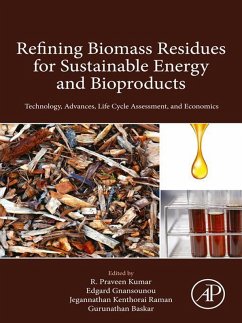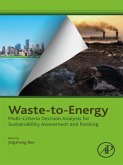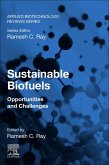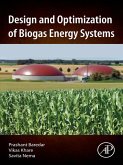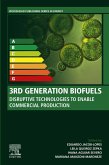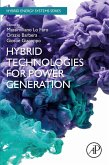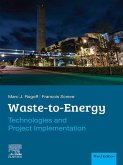The utilization of various types of biomass residue to produce products such as biofuels and biochemicals means biorefinery technology using biomass residues may become a one-stop solution to the increasing need for sustainable, non-fossil sources of energy and chemicals. Refining Biomass Residues for Sustainable Energy and Bioproducts: Technology, Advances, Life Cycle Assessment and Economics focuses on the various biorefineries currently available and discusses their uses, challenges, and future developments. This book introduces the concept of integrated biorefinery systems, as well as their operation and feedstock sourcing. It explores the specificities, current developments, and potential end products of various types of residue, from industrial and municipal to agricultural and marine, as well as residue from food industries. Sustainability issues are discussed at length, including life cycle assessment, economics, and cost analysis of different biorefinery models. In addition, a number of global case studies examine successful experiences in different regions. This book is an ideal resource for researchers and practitioners in the field of bioenergy and waste management who are looking to learn about technologies involved in residue biorefinery systems, how to reduce their environmental impacts, and how to ensure their commercial viability.
- Explores a range of different biorefinery categories, such as industrial, agricultural, and marine biomass residues
- Includes a Life Cycle Assessment of biorefinery models, in addition to costs and market analysis.
- Features case studies from around the world and is written by an international team of authors
Dieser Download kann aus rechtlichen Gründen nur mit Rechnungsadresse in A, B, BG, CY, CZ, D, DK, EW, E, FIN, F, GR, HR, H, IRL, I, LT, L, LR, M, NL, PL, P, R, S, SLO, SK ausgeliefert werden.

